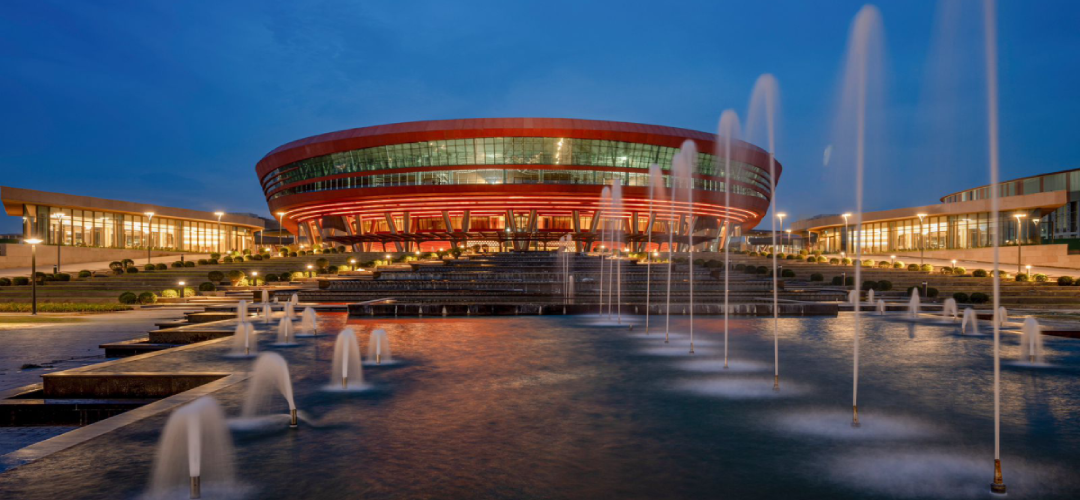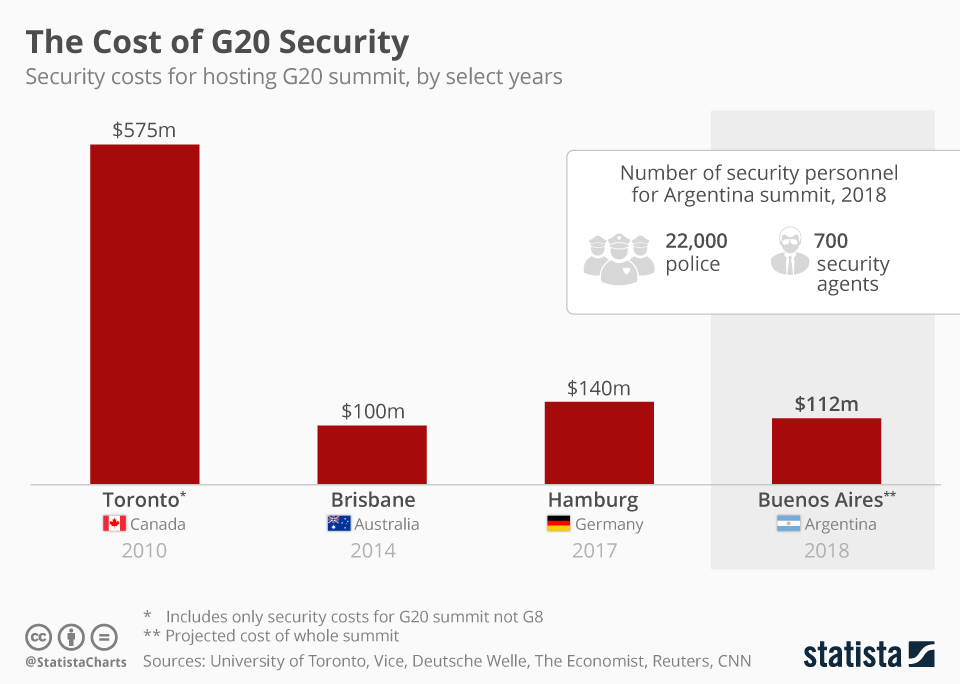A Curtain Raiser to the Summit
August 26, 2023 | Expert Insights

The Indian presidency of the G20 was a much-awaited event, and as the events rolled out, it was evident that a great amount of effort had been put in place to make the presidency unique. Prime Minister Modi was personally involved at every stage right from the onset; therefore, it is unsurprising that this remains the most significant event in showcasing India to the world for 2023.
The capstone event, the G-20 Delhi Summit, is scheduled from September 9th to 10th, during which the Delhi Government has declared public holidays with the closure of schools and colleges, banks, financial institutions, etc., with elaborate traffic arrangements, turning the heart of Lutyens's Delhi into a veritable fortress.
Background
As an aspiring global power, presiding over a high-profile event like the G20 is a significant opportunity for India. The stakes have been high, and many are the expectations from India's presidency for several reasons. As the fifth largest economy in the world, India is viewed as a key player, capable of contributing to international politics. With its positive economic growth trajectory, India is expected to make a sizeable contribution to the world economy.
It is an opportunity for India to display its diplomatic skills at a global level and act as a catalyst for interchange in key areas, including as a proponent of the Global South. Through the past months of its G20 presidency, India has encouraged alliances and connections with other countries, displayed its diplomatic skills, and encouraged international collaboration, trade, and investment.
Although the G20 may not solve the global population's multiple challenges, its member states account for 67 per cent of the world population, around 85 per cent of global GDP, and more than 75 per cent of world trade. Its central position in global governance gives it the potential to revive faith in multilateral approaches.

Analysis
India’s presidency of the G20 has seen it play a more active role in global decision-making and engage with diverse stakeholders in important areas.
Further, India is positioned to bring together the interests and needs of both developing and developed countries. With its presidency sandwiched in the middle of the troika of Global South presidencies - Indonesia, India, and Brazil - it is positioned to step into its role as a proponent of developing countries.
While India’s focus areas for its G20 agenda represent global concerns, they particularly resonate with developing countries. These focus areas include green development, progress on Sustainable Development Goals, climate finance and technology, inclusive and resilient growth, technology-led transformation, digital public infrastructure, and women-centric development.
India's G20 presidency has also come amidst several challenges facing the international community. Economic recovery from the COVID-19 pandemic continues to be a concern, exacerbated by various problems arising from the Russia-Ukraine conflict: a food and energy crisis, widespread economic distress, and inflation. Further, the Ukraine war has also led to an increasingly polarised world order with the U.S. and most of the West on the one hand and Russia and China on the other hand.
Additionally, differences between the realities of the Global North and the Global South have been accentuated in light of widely differing responses to Ukraine and many countries refusing to condemn Russia’s invasion or join sanctions. These issues formed the backdrop to the G20 and presented a unique but delicate situation in which India had to take the helm.
The G20 presidency offers several potential benefits to India, and these aspirations underpin its strategic goals for the presidency. While India is a major regional power, it aspires to become a global power. Therefore, it stands to benefit from developing alliances and relations with multiple countries and fostering networking between experts and other stakeholders. Playing an active role in global decision-making and organising high-profile events like G20 meetings could help India gain a seat on the global high table. It also improves its chances of being invited to join other forums, such as the G7 and the United Nations Security Council. Further, it changes its role from being a rule-taker to a rule-maker, from being an observer to an active member.
There is little doubt that India has executed its G20 presidency in a markedly different way from previous presidencies. It has made the G20 into a year-long series of events nationwide. As G20 chair, it has held more than 200 meetings across more than 50 cities with the participation of ministers, officials, and civil society, culminating in a final summit in New Delhi in September. Ukraine has been miffed that it did not receive an invite to put its case at the Summit, but tactfully, India wanted to avoid a slanging match between the two opponents.This has enabled it to showcase the diverse strengths and opportunities in different regions of the country. It has also tried to consult all the Global South countries about their interests and convey concerns on their behalf. India has emphasised areas critical to developing countries, such as green growth, debt, digital development, and climate finance. The fact that it has pitched for a grant of G20 membership to the African Union has resonated well in that continent.
Through the course of its G20 presidency, India has succeeded in playing a balancing role between the West and Russia on the Ukraine issue. Given the magnitude of the conflict and its impact on global diplomatic ties, hosting over 200 meetings for G20 delegates has been a feat. India has managed to maintain its neutral stance between the two opposing sides. However, one of India's diplomatic challenges has been that the polarised situation has made it difficult to reach a consensus in G20 meetings between the different groups with opposing agendas. It has navigated this by striving for agreement where possible (such as over common concerns across the board), concluding meetings with minimum convergence, and deferring contentious aspects where no agreement can be reached at all.
India has complemented its diplomatic efforts with soft power efforts, such as showcasing its culture, cuisines, and art forms during the G20 events. It has also seized the opportunity to position itself as a voice of the Global South.
While the Ukraine war has naturally taken up space in discussions, India has continued to emphasise issues that are pertinent to developing countries, such as rising inflation, debt stress, health architecture, climate finance requirements, and energy security in developing countries.
It has also made digital technology governance the centrepiece of its G-20 presidency, which signals its aspirations as a global digital leader and its intentions to harness digital diplomacy and cooperation for long-term strategic benefits. With one of the world's largest and fastest-growing digital markets, India's digital sector is one to reckon with. It is in India's interest to encourage investment in it. Digital governance and the digital economy are important not just for inclusive growth and improved connectivity but also for its aspiring global stature.
The G20 Digital Economy Working Group held meetings at Lucknow, Hyderabad, Pune, and Bangalore to develop a consensus on three identified priority areas: Digital Public Infrastructure, Security in the Digital Economy, and Digital Skilling. The last meeting at Bangalore in August witnessed over 100 delegates from G20 members, nine invited countries, and five international organisations – the OECD, ITU, UNDP, World Bank, and UNESCO. The working group meeting was followed by the Digital Economy Ministerial Meeting, which featured over 200 foreign delegates. The U.S. Ambassador at Large for cyber security and digital policy was one of the attendees in Bangalore. In a meeting with Synergia, the Ambassador emphasised the importance of cross-border approaches to securing data, data infrastructure, and information and communication architecture (such as satellites, cables, and wireless networks). He also highlighted the critical need for digital regulation to place guardrails around emerging technology without stifling innovation. There was also a G20 Digital Innovation Alliance Summit in Bangalore, featuring an exhibition of startups, incubators, accelerators, corporates, and state governments with over 110 startups from 24 countries.
The G20 meetings have provided a platform for people-to-people contact, promoting exchange and interaction between experts, companies, and government representatives in India and outside. The events in different states have also promoted local markets and companies by introducing them to foreign investors. This can encourage trade, investment, collaboration, and joint ventures in different domains, generating employment and boosting exports and technology acquisition.
India will have to find a way to ensure that the final Summit in Delhi in September (when the G20 Leader's Declaration is adopted), contributes to a lasting legacy for its presidency.
On the one hand, to be recognised as a global player, India has to offer global solutions acceptable to multiple countries. Yet, to benefit from the troika of developing country presidencies, India must emphasise policy areas that connect to the priority issues highlighted at the previous G20 chaired by Indonesia, namely – global health architecture, digital transformation, and sustainable energy transition. Further, it must bring forward a few select policy areas instead of many to ensure that its G20 legacy is clear and not convoluted. Finally, it must highlight the demands of the post-pandemic reality and prioritise action in those areas that have been revealed to be severely lacking in 2020.
For Prime Minister Modi, the G20 is a way for him to highlight his global stature and gain domestic confidence ahead of the 2024 elections.
Assessment
- Presiding over the G20 in the aftermath of the Russia-Ukraine conflict has allowed India to position itself as a mediator between the West and Moscow. Given its stance on the conflict, it was well-placed to handle the G20 presidency and has maintained its diplomatic stand throughout the year.
- Through its novel yet ambitious approach to the presidency, India has showcased numerous states and cities and the opportunities they offer foreign experts, governments, and companies – whether for collaboration, investment, or trade. This has paved the way for diplomatic, economic, technological, and social benefits.
- For the final Summit in September, India must ensure that it leaves a legacy in the G20 Leaders' Declaration. It must bring to the fore policy areas that connect with the previous declaration under Indonesia's presidency but also resonate beyond this year and can be continued in Brazil's G20 presidency. While the policy focus must be pertinent to developing countries, they should be global challenges that capture the concern of nations worldwide.








Comments